Natural Beauty
Introduction to Natural Beauty
In today’s fast-paced, appearance-driven world, natural beauty is a movement that encourages people to embrace their authentic selves. It transcends trends and celebrates the uniqueness in everyone. The concept of natural beauty focuses on showcasing your genuine features—be it your skin texture, hair type, or facial contours—and enhancing them in a way that feels authentic to who you are. It’s not just about looking good but also about feeling good and maintaining long-term health, both physically and mentally.
Embracing natural beauty also connects to the larger trend of holistic well-being. It’s a mindset that aligns with living a more conscious, sustainable, and self-loving lifestyle. This philosophy reflects an important shift in beauty standards, promoting the idea that beauty comes in diverse forms and encouraging people to prioritize health and self-care over unattainable ideals.
Why Natural Beauty Matters
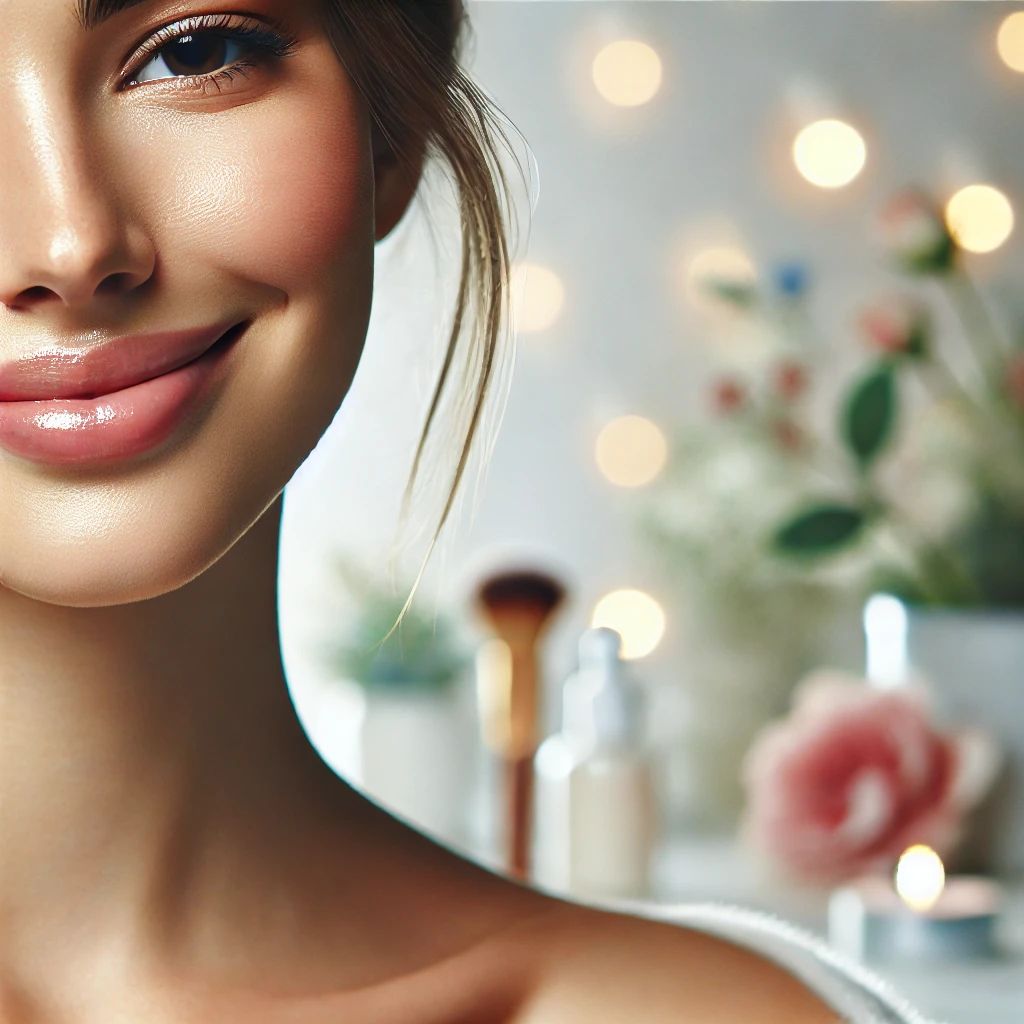
Natural beauty goes beyond mere physical appearance. It represents self-acceptance, confidence, and inner peace. It encourages individuals to stop chasing external validation and societal ideals and instead focus on self-love and embracing their unique characteristics.
1. Mental Health Benefits
Embracing natural beauty fosters a positive body image, which is crucial for mental health. Societal pressures to adhere to unrealistic beauty standards can cause stress, anxiety, and low self-esteem. On the other hand, accepting and celebrating your natural self helps build confidence and resilience against negative societal influences. This shift in mindset is empowering and encourages more authentic interactions with others.
2. Sustainable and Eco-Friendly
From an environmental perspective, natural beauty often aligns with sustainability. The beauty industry generates substantial waste, from product packaging to chemical runoff. By choosing natural, eco-friendly beauty products, you reduce your environmental footprint. Many natural beauty brands focus on ethical sourcing, minimal packaging, and using organic ingredients that are safer for both your body and the planet.
The Benefits of Embracing Natural Beauty
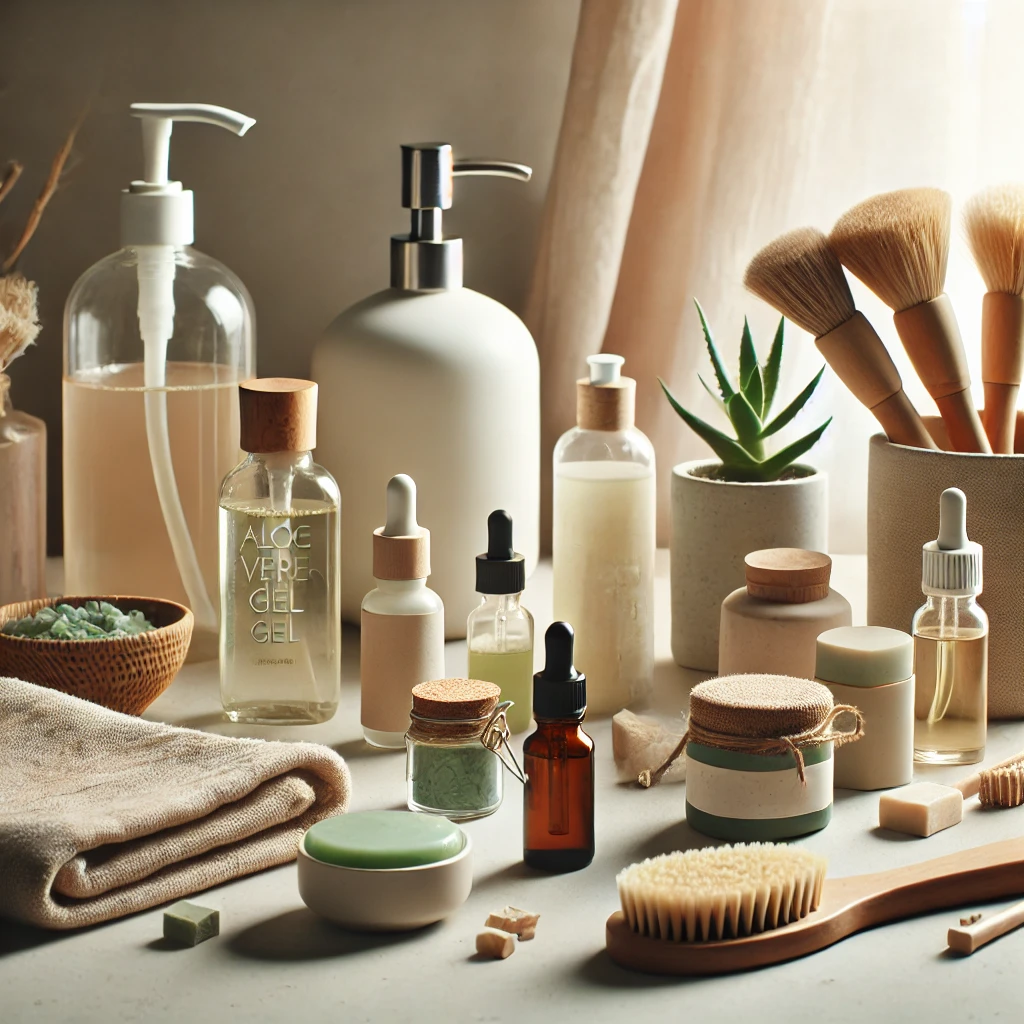
- Healthier Skin and Hair: One of the most significant benefits of embracing natural beauty is its impact on your skin and hair health. Harsh chemicals found in many commercial beauty products can strip your skin and hair of their natural oils, leading to dryness, irritation, and even long-term damage. Switching to organic, plant-based products ensures that your body gets the nourishment it needs without harmful side effects. For example, using a natural cleanser with ingredients like aloe vera can help soothe and hydrate your skin, while a conditioner with argan oil can restore shine and moisture to your hair.
- Reducing Exposure to Toxins: The average person uses multiple beauty products daily, many of which contain toxins and synthetic chemicals. These chemicals can penetrate the skin and potentially disrupt hormones, cause allergies, or lead to long-term health issues. By opting for natural products free of parabens, sulfates, and phthalates, you minimize your exposure to these harmful substances.
- Environmental Impact: Traditional beauty products can be detrimental to the environment due to their reliance on unsustainable ingredients, plastic packaging, and toxic by-products. Many synthetic chemicals in beauty products are not biodegradable, and when washed down the drain, they can pollute water systems. Opting for brands that use biodegradable ingredients and recyclable packaging helps reduce your carbon footprint.
- Cost-Effective Alternatives: A significant advantage of natural beauty is its cost-effectiveness. Many natural beauty solutions can be created at home using everyday ingredients like honey, coconut oil, or oatmeal. These DIY treatments are often just as effective as expensive commercial products, allowing you to maintain a healthy beauty routine without breaking the bank.
In-Depth Natural Beauty Tips for Everyday Life
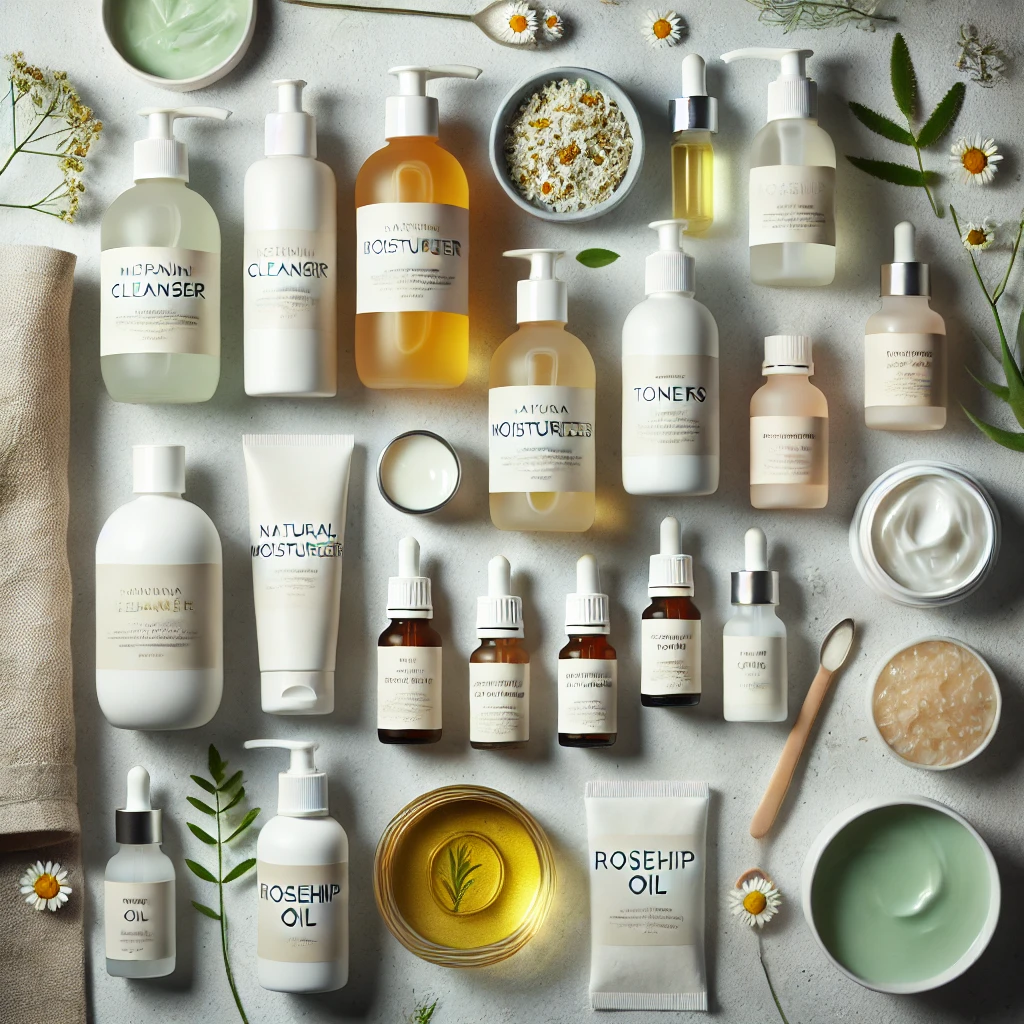
1. Skincare Routine for Natural Beauty
Your skin is your body’s largest organ, and it needs consistent care to remain healthy and radiant. A natural skincare routine can help you achieve a glowing complexion without relying on harsh chemicals. Here’s a deeper dive into crafting a natural skincare routine that works for you:
Morning Routine:
- Cleanse: In the morning, use a gentle, non-foaming cleanser with natural ingredients like aloe vera or green tea extract. These ingredients cleanse the skin without stripping away essential oils.
- Tone: A toner with witch hazel or rose water can help to tighten pores, remove residual impurities, and balance your skin’s pH.
- Hydrate: Choose a light moisturizer with jojoba oil, which mimics the skin’s natural sebum, or squalane, which helps lock in moisture.
- Protect: Daily sun protection is essential. Look for a broad-spectrum, mineral-based sunscreen with zinc oxide or titanium dioxide that shields your skin without harmful chemicals.
Evening Routine:
- Double Cleanse: This method involves two steps—first, an oil-based cleanser (like argan or coconut oil) to remove makeup and dirt, followed by a water-based cleanser to ensure your skin is thoroughly cleaned.
- Exfoliate (2-3 times a week): Exfoliation with natural ingredients like oatmeal or sugar helps remove dead skin cells, promoting a fresh complexion. Avoid over-exfoliating, as this can damage the skin’s barrier.
- Night Serum or Oil: Apply a natural serum containing vitamin C for brightening or hyaluronic acid for hydration. For extra moisture, seal it with rosehip oil or shea butter.
2. Haircare for Natural Beauty
Achieving healthy hair doesn’t require endless salon visits or chemical-laden products. Here’s how to maintain natural beauty in your hair:
- Use a Clarifying Shampoo: Once a week, cleanse your scalp deeply with a shampoo containing apple cider vinegar to remove buildup from styling products and pollution.
- Condition and Nourish: Keep your hair soft and shiny with a conditioner rich in natural oils like coconut oil, olive oil, or argan oil. These oils provide deep nourishment without leaving a greasy residue.
- DIY Hair Masks: Make a nourishing mask using ingredients like avocado, banana, and honey. These ingredients help restore moisture, strengthen hair, and add shine.
- Limit Heat Styling: While heat styling can help achieve certain looks, excessive use damages hair over time. Reduce your dependency on heat by embracing your natural hair texture and using natural leave-in conditioners to tame frizz.
3. Makeup Tips for Enhancing Natural Beauty
When it comes to makeup, less is more. The goal is to enhance, not cover, your natural beauty. Here are tips for a natural makeup look:
- Foundation Alternatives: Instead of a heavy foundation, use a tinted moisturizer or BB cream infused with natural oils and minerals. This allows your skin to breathe while evening out your complexion.
- Highlight Your Natural Glow: Apply a highlighter with mica or mineral pigments to the high points of your face—cheekbones, brow bone, and the bridge of your nose—to enhance your natural glow.
- Nude Lip Colors: Opt for a tinted lip balm made with natural ingredients like shea butter or beeswax to moisturize your lips while giving a subtle, natural color.
The Role of Diet in Natural Beauty
Your skin, hair, and nails reflect your internal health. A balanced diet filled with vitamins and nutrients supports natural beauty. Here’s a deeper look at essential nutrients:
- Vitamin E: Known as the “skin vitamin,” vitamin E is a powerful antioxidant found in almonds, sunflower seeds, and spinach. It protects your skin from oxidative stress, keeping it youthful and smooth.
- Probiotics: A healthy gut contributes to clear, glowing skin. Foods rich in probiotics, like yogurt, kombucha, and fermented vegetables, improve digestion and reduce inflammation.
- Zinc: This mineral, found in pumpkin seeds and chickpeas, plays a crucial role in healing acne and reducing inflammation.
Embracing Natural Beauty Through Lifestyle Choices

In addition to diet and skincare, daily lifestyle habits also influence your appearance. Here’s how lifestyle can support your natural beauty:
1. Stress Management
Chronic stress can cause skin issues like acne, dullness, and premature aging. Practices like meditation, yoga, and deep breathing not only improve mental clarity but also help balance hormones, leading to clearer, more radiant skin.
2. Holistic Exercise
Regular physical activity, such as yoga, Pilates, or even brisk walking, boosts circulation and delivers oxygen to skin cells. This gives your complexion a healthy glow and helps flush out toxins from the body.
3. Natural Sleep Aids
If you’re struggling with sleep, try natural remedies like lavender essential oil or chamomile tea. Adequate sleep gives your skin time to repair itself, resulting in fewer wrinkles and a more youthful appearance.
Choosing the Right Natural Beauty Products
When selecting natural beauty products, it’s crucial to be discerning. Here’s a deeper dive into what to look for:
- Ingredient Transparency: Choose products with recognizable, plant-based ingredients like shea butter, jojoba oil, or chamomile. Avoid products containing artificial fragrances, sulfates, and parabens.
- Sustainable Packaging: Look for brands that use recyclable or biodegradable packaging. Brands committed to sustainability often use glass, bamboo, or recycled materials to minimize environmental impact.
- Cruelty-Free and Vegan: Support ethical beauty by choosing brands certified cruelty-free by organizations like Leaping Bunny or PETA. Vegan products exclude all animal-derived ingredients, supporting a more compassionate and ethical beauty routine.
The Science Behind Natural Beauty Ingredients
Understanding how natural beauty products work at a deeper level can help you make more informed choices. Many natural ingredients have scientifically-backed benefits that rival, and sometimes surpass, synthetic alternatives. Here’s a closer look at some key natural beauty ingredients and how they benefit your skin and hair:
1. Aloe Vera
Aloe vera is one of the most widely used natural ingredients in skincare due to its anti-inflammatory and hydrating properties. The gel inside the aloe vera plant contains vitamins A, C, E, and B12, which help to soothe sunburns, reduce acne, and promote healing. Aloe vera also enhances the skin’s natural moisture barrier without clogging pores, making it suitable for all skin types, including oily or acne-prone skin.
2. Tea Tree Oil
Tea tree oil is a potent essential oil known for its antimicrobial and anti-inflammatory effects. It’s highly effective at treating acne due to its ability to reduce bacteria on the skin and calm inflammation. Studies have shown that tea tree oil can reduce the severity of acne without the harsh drying effects of other acne treatments like benzoyl peroxide.
3. Rosehip Oil
Rich in essential fatty acids and vitamin C, rosehip oil is a powerful antioxidant that can help improve skin elasticity, fade dark spots, and reduce the appearance of scars and wrinkles. Its natural retinoid-like properties stimulate collagen production, making it a gentler alternative to synthetic retinoids often used in anti-aging treatments.
4. Shea Butter
Shea butter is a natural fat extracted from the nuts of the African shea tree. It’s packed with vitamins A and E, which deeply moisturize and nourish the skin. Shea butter has been scientifically proven to have anti-inflammatory and healing properties, making it an ideal ingredient for soothing dry or irritated skin.
5. Green Tea Extract
Green tea is rich in polyphenols, particularly epigallocatechin gallate (EGCG), which has powerful antioxidant, anti-inflammatory, and anti-carcinogenic properties. It helps protect the skin from UV damage, reduces inflammation, and combats the effects of aging by neutralizing free radicals.
Tailoring Natural Beauty to Your Skin and Hair Type
Everyone’s skin and hair are different, which means a one-size-fits-all approach won’t work for everyone. Here’s how to tailor your natural beauty routine based on your specific needs:
For Oily Skin
- Cleanser: Use a gentle cleanser with charcoal or clay, which help absorb excess oil while keeping the skin balanced.
- Moisturizer: Go for lightweight, non-comedogenic oils like grapeseed oil or jojoba oil. These oils are great for oily skin because they mimic your skin’s natural sebum, helping to regulate oil production.
- Exfoliation: Exfoliate 2-3 times a week with a natural scrub containing salicylic acid from willow bark to prevent clogged pores.
For Dry Skin
- Cleanser: Use a creamy cleanser that contains hydrating ingredients like milk or honey.
- Moisturizer: Heavier oils, such as argan oil or shea butter, provide the deep hydration dry skin needs.
- Masks: Incorporate a hydrating mask with ingredients like avocado and oatmeal 1-2 times a week to lock in moisture.
For Combination Skin
- Cleanser: Opt for a gentle, balancing cleanser that won’t strip the skin but still cleanses away impurities.
- Moisturizer: Use a lightweight moisturizer on oily areas (such as the T-zone) and a richer cream on dry areas (like the cheeks). Aloe vera gel is great for maintaining this balance.
For Curly Hair
- Shampoo: Use a sulfate-free shampoo to avoid drying out your curls. Ingredients like coconut milk or aloe vera help hydrate the hair.
- Conditioner: Deep condition regularly with a product containing shea butter or argan oil to keep curls soft and moisturized.
- Styling: Use a leave-in conditioner or flaxseed gel to define curls and reduce frizz.
For Fine Hair
- Shampoo: Choose a volumizing shampoo with natural ingredients like rice protein or green tea extract to give your hair a fuller appearance without weighing it down.
- Styling: Avoid heavy oils and creams. Instead, use lighter products like aloe vera gel or rosemary oil for scalp stimulation and volume.
Emotional Well-Being and Natural Beauty
The connection between emotional health and physical appearance is undeniable. Your inner state of well-being often reflects in your skin, hair, and overall appearance. Here’s how prioritizing emotional well-being can enhance your natural beauty:
1. Stress and Skin Health
Chronic stress can lead to skin issues such as acne, psoriasis, and premature aging. When the body is under stress, it releases cortisol, a hormone that triggers inflammation and can lead to increased oil production, breakouts, and other skin problems. Incorporating stress-relief practices like yoga, deep breathing exercises, or meditation into your routine can significantly improve your skin’s health.
2. Mindfulness and Self-Care
Mindfulness involves being fully present and engaged in the moment, which can enhance the experience of self-care. When you take time to care for your skin or hair mindfully, it becomes more than just a routine—it’s a form of self-love. Taking the time to pamper yourself with a DIY face mask or a relaxing bath using essential oils like lavender and eucalyptus can elevate your mood and boost your confidence.
3. Affirmations for Positive Body Image
Positive affirmations can play a powerful role in how you perceive yourself. Simple statements like “I embrace my natural beauty,” or “I am radiant and confident in my own skin,” repeated daily, can help shift negative self-talk into positive thinking. When you feel good about yourself, it shows in how you present yourself to the world.
Ethical Consumption in Natural Beauty
The rise of conscious consumerism means that more people are paying attention to the ethical impact of the products they buy. The natural beauty movement emphasizes not only what we put on our skin but also how our beauty choices affect the world around us. Here’s how to make more ethical beauty choices:
1. Cruelty-Free Products
Ensure that the beauty products you use are cruelty-free, meaning they are not tested on animals. Look for certifications like the Leaping Bunny or PETA’s cruelty-free certification. Many cruelty-free brands also emphasize using natural, plant-based ingredients, aligning with the overall ethos of natural beauty.
2. Sustainable Sourcing
Supporting brands that focus on sustainably sourced ingredients helps minimize the negative environmental impact. Ingredients like argan oil, shea butter, and coconut oil should come from ethically managed farms that ensure fair wages and sustainable practices.
3. Zero Waste Beauty
To truly embrace natural beauty, it’s essential to consider the waste generated by beauty products. Opt for zero-waste beauty brands that use minimal packaging, refillable containers, or biodegradable materials. DIY beauty treatments are also an excellent way to reduce waste, as you can reuse jars and containers while avoiding excessive packaging.
The Holistic Approach to Natural Beauty
Natural beauty is not just about what you apply externally; it’s also about adopting a holistic lifestyle that supports your overall health and well-being. Here’s a breakdown of how adopting a holistic approach can transform your natural beauty routine:
1. Holistic Diet for Glowing Skin
- Collagen-Boosting Foods: Foods rich in vitamin C, like citrus fruits and broccoli, help increase collagen production, keeping skin firm and youthful.
- Hydration-Rich Foods: Include foods high in water content like cucumbers, watermelon, and leafy greens to keep your skin hydrated from within.
- Gut Health: A healthy gut is essential for clear skin. Include probiotic-rich foods like kefir, kimchi, and sauerkraut to support digestive health and reduce inflammation, which can manifest as acne or redness.
2. Mindful Beauty Practices
Incorporating mindfulness into your beauty routine can improve your overall experience. Take time to enjoy the process of self-care:
- Skin-Soothing Rituals: Apply your skincare products with slow, circular motions to stimulate circulation and relax the facial muscles.
- Aromatherapy: Use essential oils like lavender, frankincense, or rose during your skincare routine to create a calming atmosphere, reducing stress and boosting emotional well-being.
3. Sleep and Natural Beauty
Sleep is essential for natural beauty. During sleep, your body enters repair mode, healing damaged cells and regenerating skin, hair, and nails. Here’s how to optimize sleep for beauty:
- Beauty Sleep: Aim for 7-9 hours of restful sleep every night. This is when your body produces collagen, which keeps your skin firm and smooth.
- Silk Pillowcases: Swap your cotton pillowcase for silk, which reduces friction and prevents sleep lines and hair breakage.
Conclusion: The Complete Path to Natural Beauty
Embracing natural beauty is about celebrating your authentic self, making mindful choices, and living in harmony with nature. Whether it’s choosing sustainable, cruelty-free products, or nourishing your body with wholesome foods, natural beauty is a lifestyle that nurtures both your outer appearance and inner well-being. By incorporating ethical consumption, emotional self-care, and the science of natural ingredients into your routine, you’ll find that your beauty routine can be a powerful tool for both self-expression and self-love.
Key Takeaways:
- Personalized Care: Tailor your beauty routine based on your unique skin and hair type, using ingredients and methods that align with your needs.
- Emotional Well-being: Incorporate mindfulness and stress-relief practices to improve your mental health, which in turn, enhances your natural beauty.
- Ethical Beauty: Make responsible choices by supporting cruelty-free, sustainable, and zero-waste beauty brands, contributing to a healthier planet.
- Holistic Lifestyle: Natural beauty is not only about external care but also about internal well-being. Prioritize a healthy diet, regular exercise, and adequate sleep to achieve true radiance from the inside out.
For further insights into wellness and beauty, explore our related post on Artificial General Intelligence.
For more insights and expert tips on embracing your natural beauty, check out this comprehensive guide on The Ultimate Guide to Natural Beauty by Healthline, where you’ll find additional advice on nurturing your skin, hair, and overall well-being naturally.
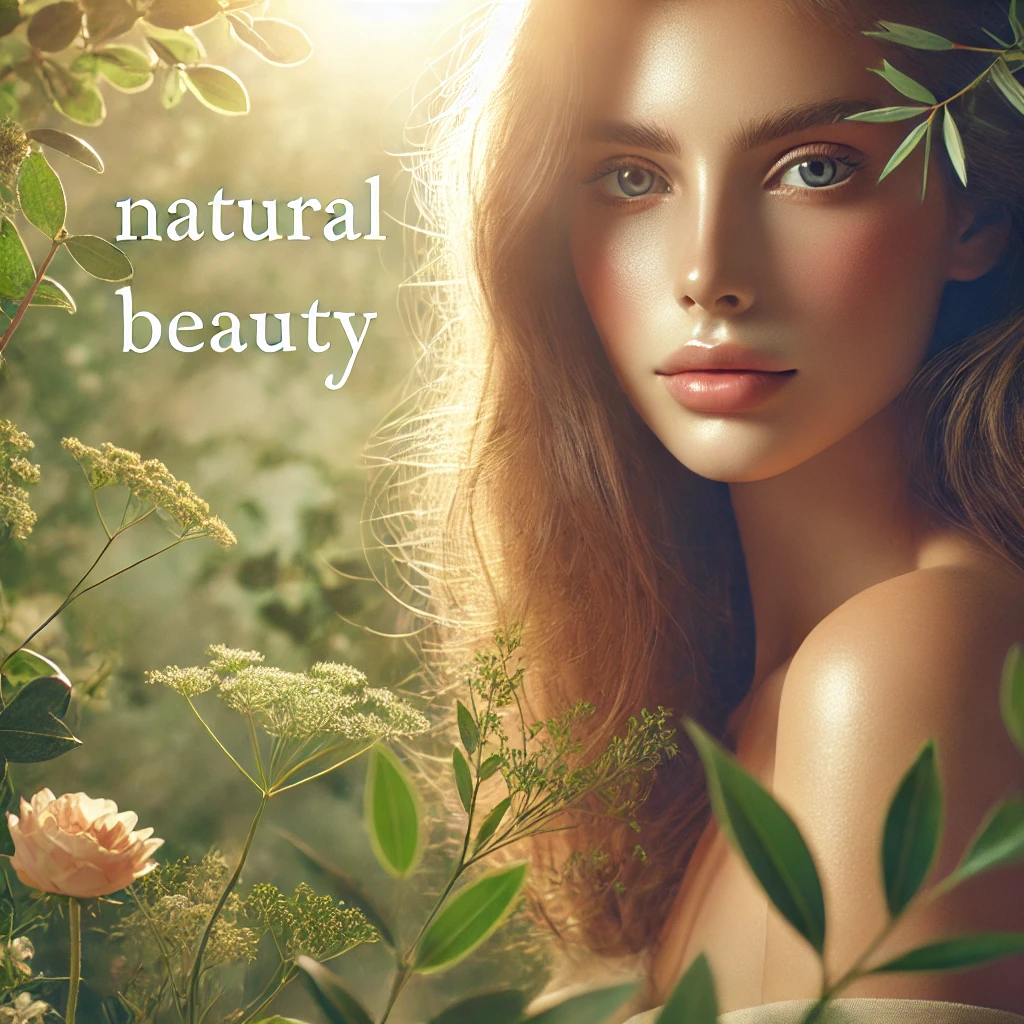
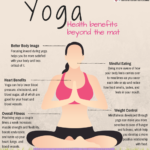






6 thoughts on “10 Powerful Ways to Embrace Natural Beauty – Achieve Your True Self | Memestrology”